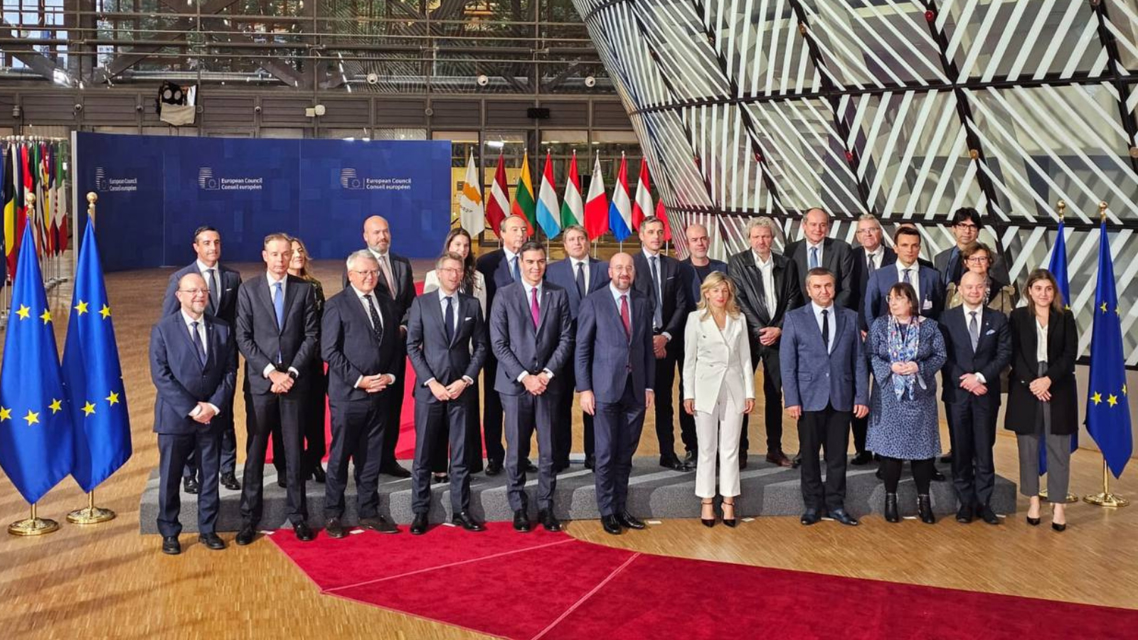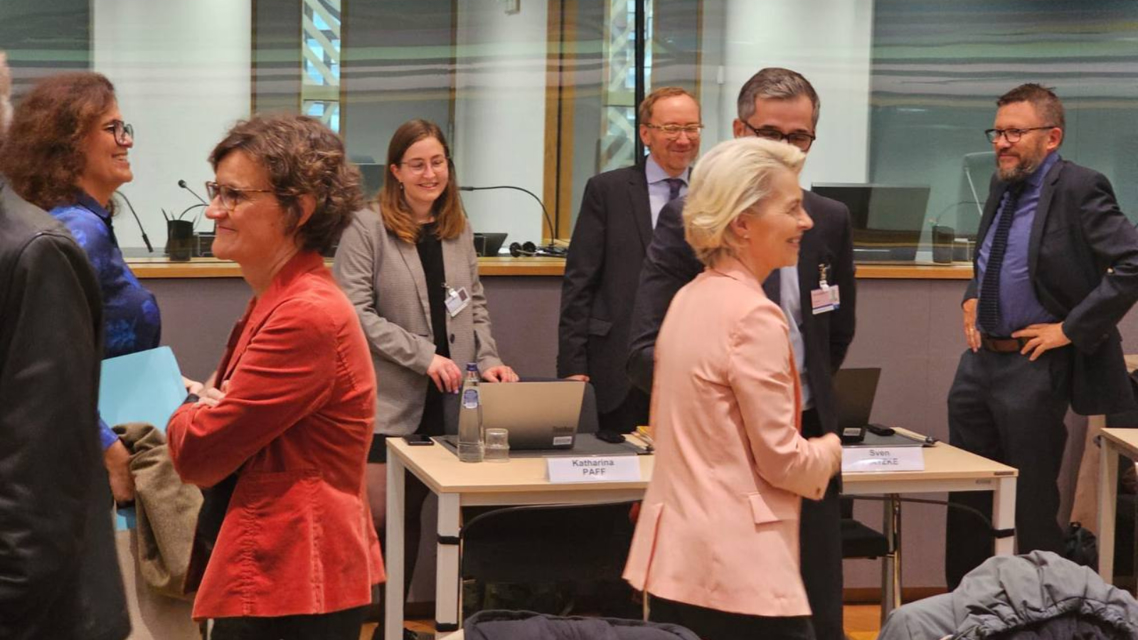The TSS is a forum for dialogue between the EU institutions, at president level, and the European social partners at top management level. The meeting focused on addressing labour shortages, an industrial and energy policy for a successful Europe, delivering quality jobs and sustainable growth, the response to the United States’ Inflation Reduction Act, and measures for the European Economy with the views of the social partners.
At the meeting, chaired by Ursula von der Leyen and Charles Michel, industriAll Europe’s Joint Acting General Secretary, Isabelle Barthès, stressed the concerns and demands that trade unions have for the future of European industries.
“Industrial workers in Europe are increasingly - and rightly - anxious about their jobs, wages, working conditions, and the future of their communities”, warns Isabelle Barthès.
While the climate crisis is intensifying, the fight against climate change is increasingly turning into a race for clean tech, both in Europe and at global level. Recent research shows that with the proposed fiscal rules, only four Member States would have the fiscal space to make the much-needed green investment to meet the ambitions of the Paris Agreement.
“If fiscal and industrial plans are not aligned, we run the risk of increasing the inequalities within and between countries, and we also run the risk of increasing de-industrialisation and fragmentation of Europe.
“Right now, Europe doesn’t need a saving policy, it needs a smart policy: What Europe urgently needs is a proactive industrial and energy policy, based on investment, solidarity between Member States, and quality jobs. A European fund is also essential to support Member States with limited resources to finance their transition”, says Isabelle Barthès.
While industriAll Europe welcomes the Green Deal Industrial Plan and its production targets for strategic technologies, the Plan cannot ignore the need to look at whole value chains.
“We cannot focus on producing the technologies for the wind sector without looking at the steel needed to produce the wind turbine towers. For that, we need green steel produced in Europe, with the involvement of workers!
“With the Green Deal legislation now in place, it has to be implemented, and implementation will not happen without workers’ involvement. Whether in chemicals or in the automotive industry, workers face deep changes if they don’t have the right tools to anticipate and manage these changes. Despite the significant focus on reskilling/upskilling, only a third of workers had access to training at work in the last year.
“For a fair and Just Transition, workers need a seat at the table through social dialogue, collective bargaining and an individual right to training: a right to employment security is key to ensure job quality”, adds Isabelle Barthès.
In contrast with the EU, the US is making the social case for the industries of the future by addressing labour shortages through quality job creation and training.
“The European Year of Skills is not enough. We need to do more; Europe needs to do more! We need social conditionalities on all public support, at all levels! Quality industrial jobs should be our compass in the industrial transformation”, states Isabelle Barthès.

